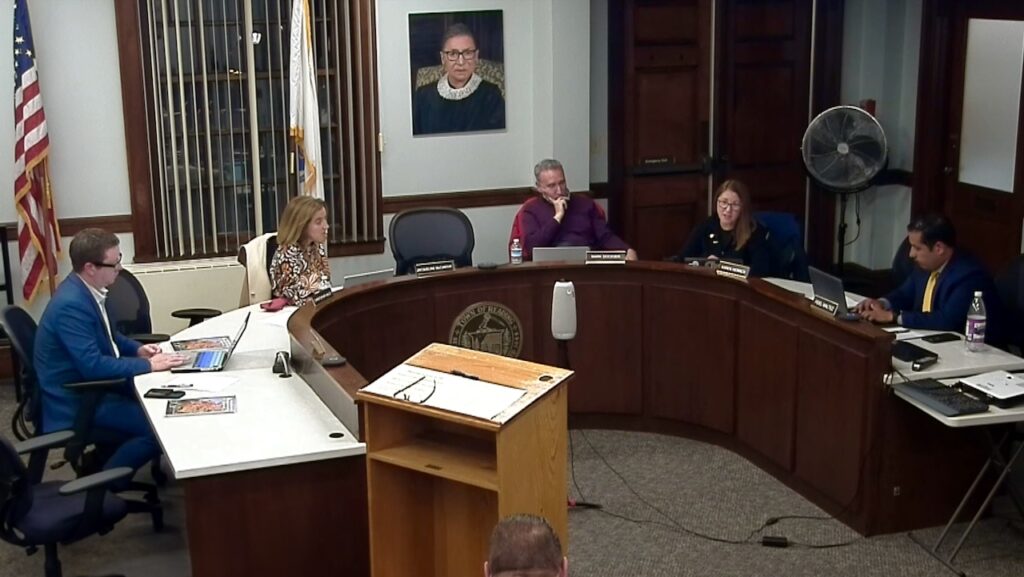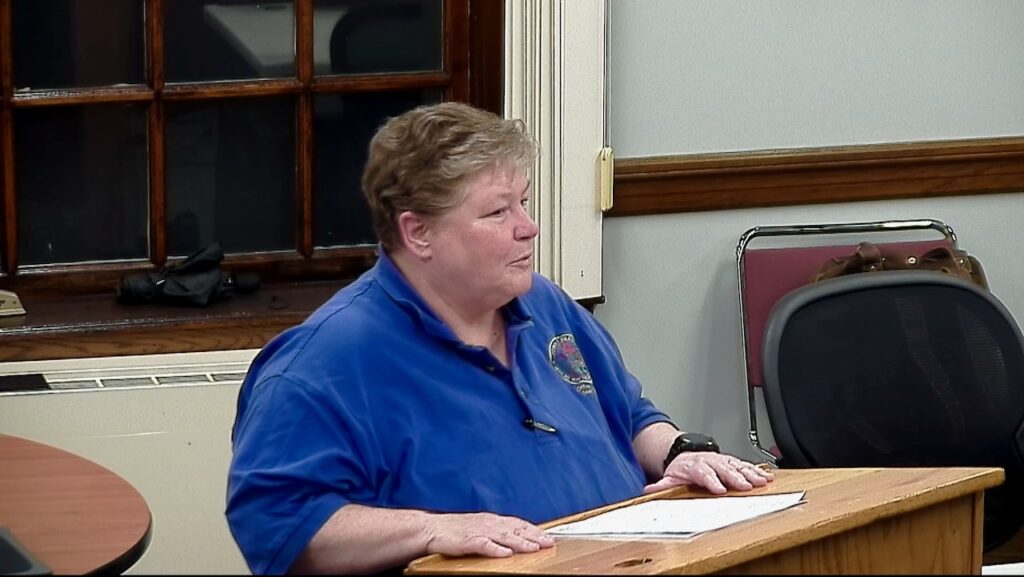Board Passes 1.1 Commercial Shift

Reading, MA — By a vote of 3-2, the Select Board voted on Tuesday night to set the commercial shift for property taxes in town to 1.1 for 2024. This is an increase from the 1.05 shift in 2023. Select Board chair Jackie McCarthy cited the reason for the increased shift to increase the equity between residential taxes and commercial taxes: “This vote every year forces us to have a little humility in our strategy,” McCarthy remarked.
Without the change, the average residential property in Reading, valued at $859,000, would have seen a $394 increase in its taxes, while the median commercial property, valued at $803,800, would have seen a $543 decrease in its tax bill. Under the new plan, the average residential taxpayer will have a $360 tax bill increase, while the median commercial owner will have a $69 decrease in the bill. Select Board member Mark Dockser was quick to point out that the change in classification does not affect revenues, only on the source of those revenues.
Residents Will Finch, Mary Ellen O’Neill, John Lippet, and Vanessa Alvarado supported an increased tax shift during public comment. At the same time, Jamie Bradley, Tom O’Connor, and John Douglas voiced concerns for the business community and requested that any change be delayed.
Select Board member Karen Herrick, along with Dockser, voted against the change. They both preferred a greater shift of 1.2 from the current 1.05 shift. “We need to fairly apportion the communal responsibilities we all have,” Herrick argued. “I can’t keep voting for tax policies that are not fair to residents,” Herrick offered.
Herrick also called for the board to consider a strategy to get the shift as close to the maximum allowable 1.5 over several years. Dockser agreed. “A commercial tax decrease with a residential increase is not equitable,” Dockser shared. “We need to support residents as well as businesses.”
Select Board member Christopher Haley initially argued for no increase in the shift, citing the challenges that small businesses face in the current environment. “Small businesses are not equipped to saddle that amount of change,” Haley argued. Herrick countered that residents are feeling the same cost increases that business owners are encountering. Haley also pointed out the several municipal services that commercial owners do not receive, including trash removal and schools.
While recognizing that a gradual shift is coming, Select Board member Carlo Bucci pointed to several challenges facing businesses, including higher wages, supply chain challenges, and materials costs. “A slow and gradual [increase] is fair,” Bacci concluded.
Dockser proposed a compromise of a 1.15 shift, which would increase the average residential bill by $326 and the average commercial bill by $397, calling it “the right direction for this year.” Herrick made a motion to this effect, and it failed by a 2-3 vote. Herrick then reiterated that she was unclear on how a $69 tax decrease for commercial properties, with the 1.1 shift, is fair. A second motion with the 1.1 shift was made and approved by the 3-2 vote.
The board also voted 5-0 not to accept an open space exemption as no properties in Reading qualify. It voted 5-0 not to accept the residential exception and 5-0 to not accept the small commercial exception. Haley expressed frustration that the state has not adjusted the small commercial exception law in several years, rendering it untenable as a relief.
Local Election 2024

Town Clerk Laura Gemme initiated a discussion regarding the possibility of moving the town election, currently scheduled for April 6, to the date of the presidential primary election on March 5. Gemme shared that making the change does not save much money, about $10,000, but it often increases voter turnout. She also pointed out that it increases the number of ineligible mail-in ballots as voters are confused that the ballots must be sent in separate signed envelopes. If this step is done incorrectly, the ballot is considered invalid. The Select Board will vote and decide on the issue at its November 7 meeting.
Town Manager Screening Committee
The board discussed the makeup of the ad hoc Town Manager Screening Committee. McCarthy announced that Bernie Lynch submitted the low bid and has been hired as the search consultant on the project. Lynch was the consultant when current Town Manager Fidel Maltez was hired 20 months ago. Maltez also reported that his first day as the City Manager in Chelsea will be January 1. He suggested that the board consider the appointing of an interim Town Manager until a new Town Manager is hired.
McCarthy proposed a committee with two Select Board members, the Moderator, one member of the Finance Committee, one member of either the School Committee or School Building Committee, Police Chief David Clark, and one or two residents at large. She also stated that she would be interested in being one of the Select Board appointees. Both Dockser and Bacci also indicated that they would be interested in serving on the Screening Committee as well. The board will take up the issue again on November 7.
Board of Registrars
The Select Board voted 5-0 to appoint Michael McSweeney to the Board of Registrars with a term ending in June 2024. McSweeney is a 40-year resident of Reading and a former political science teacher.
The Select Board adjourned at 10:45 p.m.
